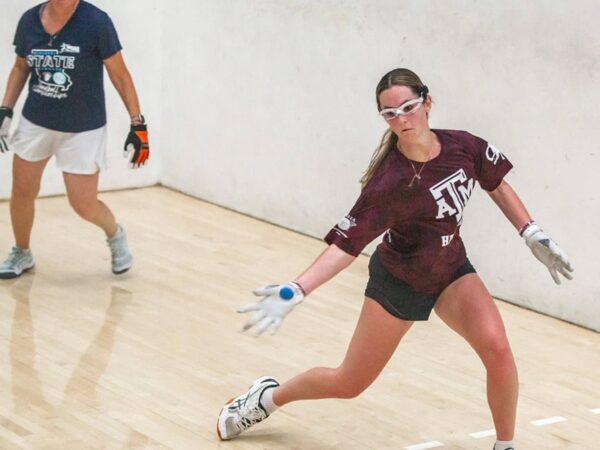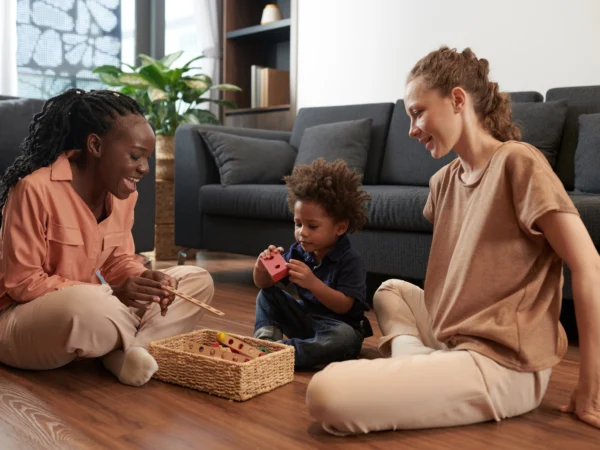Educational resources for your children
School districts across the country are closing indefinitely in response to the Coronavirus. Some schools have even closed for the rest of the academic year. That would mean some students could go without formal schooling for months.
While we await further decisions from lawmakers, the Texas Education Agency and local superintendents, faculty in the College of Education and Human Development are working to gather resources for students to stay academically engaged.
According to Dr. Debra McKeown, associate professor in the Department of Teaching, Learning and Culture, there are five critical aspects of each day families should have planned for their students: emotional connection, intellectual stimulation, social connection to someone outside of the home via phone or video call, physical activity and fun/laughter.
“Children do not automatically make connections or generalize new learning; that happens through guidance and interactions,” said McKeown. “Social interaction is a key component of learning, but we need to be creative about how that interaction occurs now if in-person is not possible.”
One way to interact is through The Learning Network on The New York Times. Each week there are new ways for students to practice reading, writing and thinking while interacting with others around the world.
Literacy activities
Our faculty also point to the importance of keeping children engaged in writing activities. Several authors, such as Newbery Medalist Kate DiCamillo and Kennedy Center Education Artist Mo Willems, are offering tips and writing advice through online workshops.
“Writing is so critical because this key aspect of literacy is one that can soothe us during stressful times,” said Dr. Sharon Matthews, clinical assistant professor in TLAC. “Children should be given opportunities to draw and write about what they are experiencing, and parents may have many materials that can easily be repurposed to help children create pieces that help them work through what they are feeling.”
You can also digitally check out books from our local libraries for kids, teens and adults.
What if you or your child do not have access to these online resources? Dr. Jeanne Carter, lecturer in TLAC, suggests activities such as writing the pantry.
- Have your child read the labels on pantry items.
- Remove the labels of cans and other grocery items as you use them and make a label dictionary. Add pictures of names of other foods that begin with the same letter as the grocery item. For example, on a bean can or bag label page in the dictionary, add words like bacon, bread, buns or butter.
- Make a list of the words that are common on each item.
- Look for words that begin with each letter of the alphabet.
- Write a new recipe using pantry items.
- Write a poem about grocery items.
- Create a new vegetable. Draw it and describe it.
McKeown focused on other ways to get your students thinking about reading, writing, speaking and listening.
- Read a book and summarize what you are reading.
- Play “if I were the author…” where children talk through ideas they would change in the story, such as the plot, characters or setting.
- Create a new title and design a new cover for the book.
- Write your own story.
- Write a newspaper article about what is happening in your own home. Act as a reporter, recording history in the making.
- Write letters to family, friends, teachers or community helpers such as healthcare workers and grocers.
Science Activities
Keeping children engaged in science activities is also important during school closures. Not only is it important to keep their minds working, a bit of normalcy in guided educational experiences can be comforting to children.
“It’s important that kids continue to explore the world around them, even when they’re not in the classroom. Science is more than just facts, it’s being curious, asking questions, investigating everyday things and understanding the why, not just the what,” said Dr. Sara Raven, assistant professor in TLAC. “This is an overwhelming time for many families. Finding opportunities for learning science at home in ways that are open-ended and not very materials-intensive is one way that we can support them.”
Raven, and Kelly Baldwin, a kindergarten teacher in Klein, Texas, put together a series of activities that touch on all major science content areas. The activities focus on children preschool through third grade with hands-on activities using materials and resources you likely already have at home.
Other resources
We’ve worked with our faculty to develop a growing list of supported resources available. For those without access to the internet, there are activities you can also complete. We will continue adding to this list as our faculty share more resources.
About the Writer
Ashley is the Media Relations Coordinator and responsible for news coverage in the Department of Teaching, Learning and Culture as well as the Department of Educational Psychology.
Articles by AshleyFor media inquiries, contact Ashley Green.
Fundraising
To learn more about how you can assist in fundraising, contact Amy Hurley, Director of Development ahurley@txamfoundation.com or 979-847-9455














